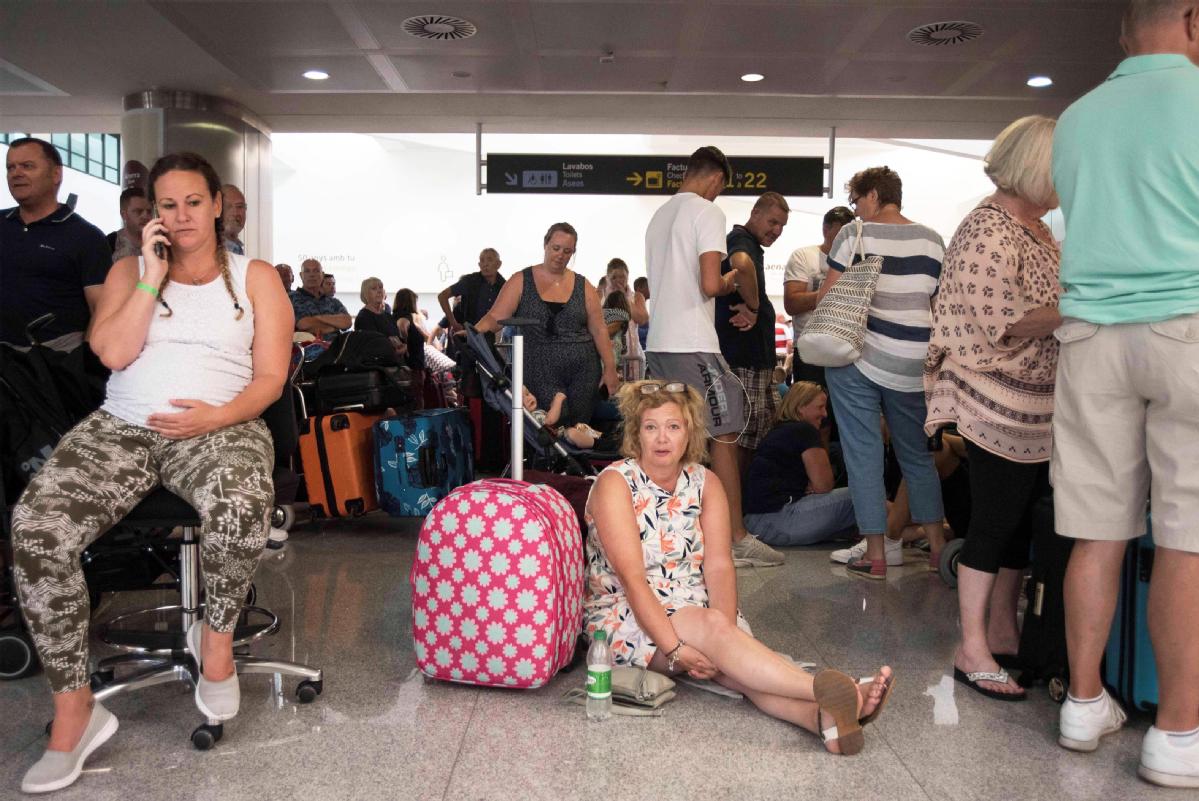Demise of travel giant Thomas Cook felt far beyond UK
By Earle Gale in London | China Daily Global | Updated: 2019-10-08 09:35

The demise of United Kingdom travel giant Thomas Cook has sent shock waves through not only Britain but the wider world.
The company, which was founded in 1841 by a cabinetmaker to facilitate rail travel for alcohol-abstaining activists, grew to become part of everyday British life.
But a perfect storm of cheap online holidays, declining interest in foreign travel, and unusually good weather in the UK conspired to bring the company to its knees on Sept 23. It grounded its 105 aircraft and closed the door on its 200 brand hotels and resorts. An international workforce of 22,000 in at least 18 countries was suddenly idle, despite a last-ditch rescue attempt by Fosun, the Chinese majority shareholder.
To many, the failure had been unimaginable.
In the UK, the compulsory liquidation meant 9,000 people lost their jobs, and 600 stores were closed.
The Guardian newspaper said the cost of repatriating the 155,000 travelers who had been stranded overseas would land the UK government with an unwanted £100 million ($123 million) bill. Hoteliers will also need compensation, along with customers who booked holidays they never got to enjoy - meaning the government and the underwriters of the UK travel industry will be on the hook for around £500 million.
Around 365,000 people who paid for Thomas Cook holidays that will not happen will get full refunds from the Air Travel Organizer's License program, known as Atol.
The failure is also causing pain far shores. The Independent newspaper says destinations that had relied heavily on Thomas Cook's business could become ghost towns, at least until other companies can find the capacity and business plans needed to fill the void. Tunisia, Cuba and Turkey will be especially hard hit.
In the UK, airports that had worked closely with Thomas Cook will also suffer, including Birmingham, Cardiff, East Midlands, Gatwick, Glasgow, Manchester and Newcastle.
The Guardian newspaper says the Insolvency Service, the Financial Reporting Council and the House of Commons' business select committee will conduct postmortems, to find out why the company ended up with a balance sheet deficit of £3.1 billion, and ask whether it was appropriate for the past three chief executives to have been paid a combined £35 million during the past 12 years.
But in communities throughout the UK, people are focusing on helping those who lost their jobs or had their holidays ruined.
The town of Rayleigh is typical. The community of 35,000 on the Thames estuary 30 miles east of central London has rallied in support of those who had worked in the local Thomas Cook store or at nearby London Southend Airport.
Sharon Sims had been on vacation on Tenerife, part of Spain's Canary Islands, off the west coast of Africa, when the company went under.
"We saw a Thomas Cook rep in a beach bar still working, as he wasn't prepared to leave all the families out there stranded," she said. "He was taking constant phone calls and had tears in his eyes. We bought him a beer and talked with him. I feel so sorry for them."
The collapse inspired a local eatery to offer Thomas Cook staff members who lost their jobs a free brunch, while hairdressers in nearby Leigh-on-Sea offered a free cut and blow dry, and a local nightclub offered free cocktails to the company's former employees.
The efforts have been matched by former Thomas Cook employees going above and beyond the call of duty for their neighbors.
According to the BBC, staff members who had worked at a Thomas Cook travel agency in Telford, Shropshire, began giving free advice to worried locals from a cafe after putting a sign in the window of their closed store advertising the service.
"When we put up the sign, we thought we might have two or three people, but we have had so many," said former store manager Kimberley Jeffries.
In Manchester, hundreds of former Thomas Cook employees protested outside the Conservative Party annual conference, asking why the company wasn't offered a government bailout.
Andy Burnham the city's mayor, was among them.
"Thousands of people in greater Manchester woke up last week to the news that they didn't have a job," Burnham said, "and today they were expecting a paycheck, and of course it has not arrived."
























